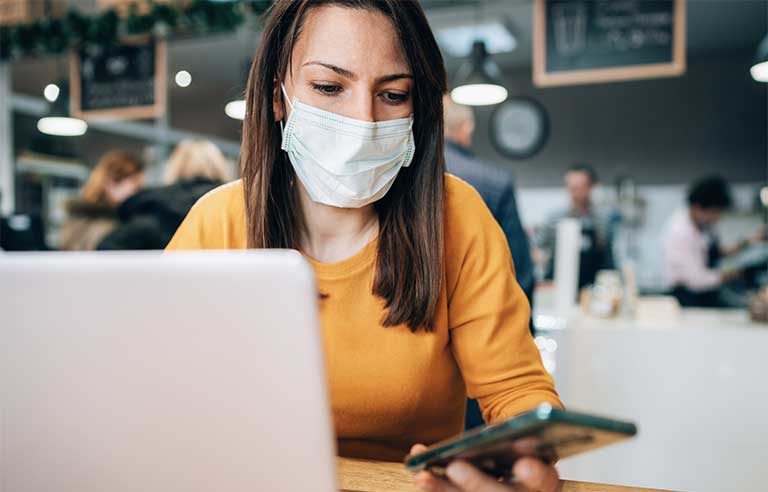Cellphones may be ‘Trojan horses’ of coronavirus spread, researchers say

Robina, Australia — Photos. Music. The coronavirus?
Our cellphones carry more than we think – including infectious germs – and likely serve as “Trojan horses” for the COVID-19 pandemic, researchers from Bond University say.
The researchers reviewed 56 studies from 24 countries in which cellphones were examined for bacteria, fungi and/or viruses. The studies were conducted from January 2005 to December 2019. Results showed that strains of E. coli and Staphylococcus aureus are among the most common contaminants on cellphones, which, once touched, can spread to users.
This helped frame the researchers’ hypothesis that cellphones “are most likely contributing to the spread of SARS-CoV-2” – the coronavirus that causes COVID-19 – “within different professional settings, including hospitals, and may play a significant role in viral propagation within the community,” despite the fact the review didn’t directly address SARS-CoV-2.
“The extraordinarily fast contagion that has scientists puzzled might reside within these mobile phones, spreading COVID-19 everywhere at ultraspeed,” Lotti Tajouri, the study’s lead researcher and an associate professor of biomedical sciences at the university, said in a press release. “After all, they’re everywhere, traveling the world in planes, cruise ships and trains.”
The researchers call on everyone to clean their cellphone each day, with Tajouri advising them to think of their device as a “third hand” to be shielded from bacteria.
“Let’s take that hypothesis seriously,” Tajouri said. “If we clean our phones daily and this makes a difference, then we might with this little action curve down the COVID-19 [pandemic] and save lives.”
The study was published online April 28 in the journal Travel Medicine and Infectious Disease.
Post a comment to this article
Safety+Health welcomes comments that promote respectful dialogue. Please stay on topic. Comments that contain personal attacks, profanity or abusive language – or those aggressively promoting products or services – will be removed. We reserve the right to determine which comments violate our comment policy. (Anonymous comments are welcome; merely skip the “name” field in the comment box. An email address is required but will not be included with your comment.)
